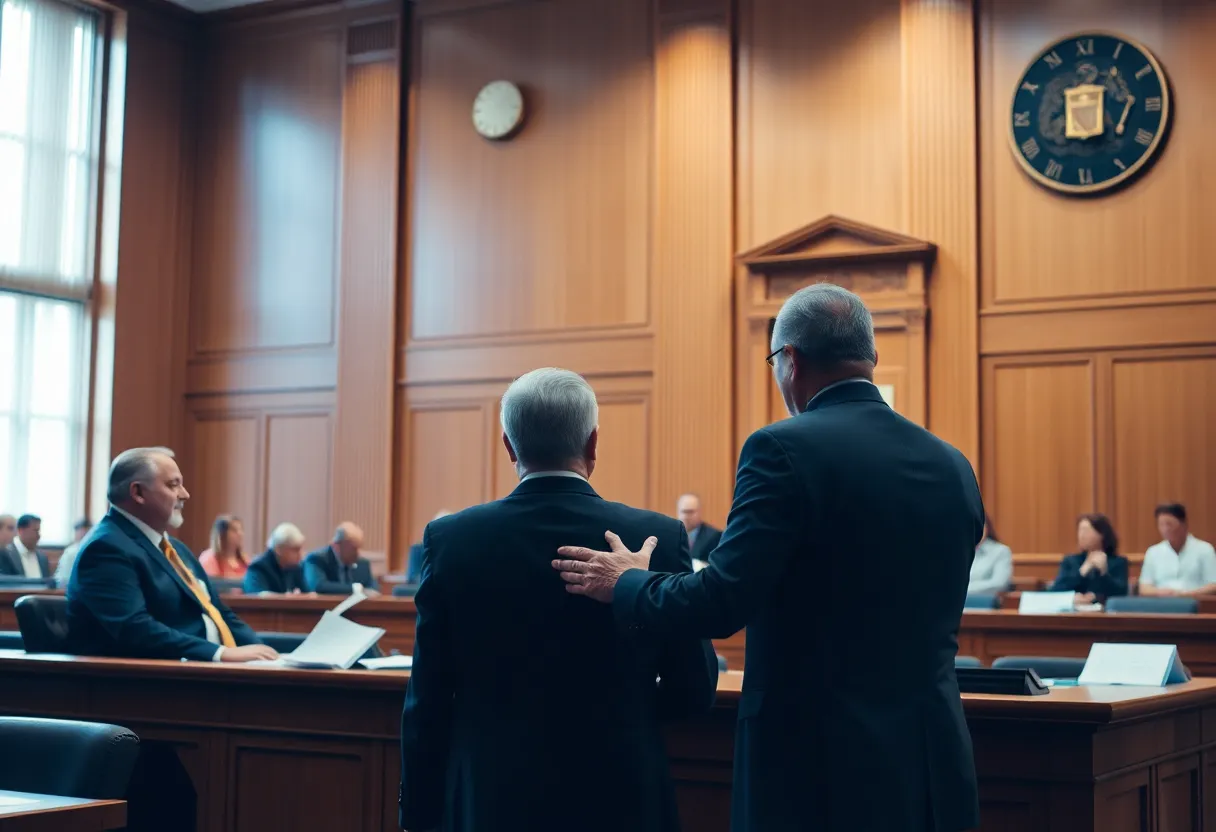News Summary
Bestwall LLC, Georgia-Pacific’s asbestos liability arm, faces a pivotal appeal that could reshape asbestos litigation and corporate bankruptcy practices.
Bestwall’s Bankruptcy Battle: A Legal Tangle Over Asbestos Liability
Introduction
In a significant legal confrontation, Bestwall LLC, the asbestos liability-holding entity of Georgia-Pacific LLC, is gearing up for a pivotal appeal that may reshape the landscape of asbestos litigation. This case could set precedents regarding the eligibility of solvent companies to seek bankruptcy protection while fending off mounting product liability lawsuits.
The Appeal’s Context
Bestwall is appealing its Chapter 11 bankruptcy filing validity to the U.S. Court of Appeals for the Fourth Circuit. Claimants, alleging harmful asbestos exposure through Georgia-Pacific products, challenge this move, asserting that Georgia-Pacific’s solvency makes Bestwall’s bankruptcy improper. This ongoing saga is intimately tied to Bestwall’s efforts to manage an overwhelming number of product liability lawsuits that have spanned nearly eight years.
Shell Companies and Bankruptcy Misuse
The use of shell companies designed to offload tort liabilities and navigate the bankruptcy system has long been a contentious issue, particularly in cases related to asbestos. Critics argue that such tactics undermine the judicial system and prioritize corporate interests over the health concerns of affected individuals. In this instance, Bestwall’s actions are viewed as an attempt to sidestep accountability, further complicating the intricacies of both legal and ethical practices in corporate bankruptcy.
Financial Distress or Strategic Maneuvering?
Compounding this controversy, the financial underpinnings of Bestwall’s claims are under scrutiny. Despite asserting its need for bankruptcy, Georgia-Pacific reportedly disbursed approximately $1.84 billion in dividends to its parent company, Koch Inc. This revelation raises suspicions among the claimants about the authenticity of Bestwall’s claimed financial distress. Legal experts note the lack of much statutory authority supporting the dismissal of this bankruptcy case based on the company’s solvency, indicating that the Fourth Circuit may be faced with a complex web of legal principles and financial realities.
The Broader Legal Landscape
Bestwall is far from alone in encountering legal challenges of this nature. Other corporate entities, including two divisions of Trane Technologies Plc, are navigating similar procedural hurdles, reflecting a wider trend among solvent companies exploring bankruptcy routes for relieving liability pressures. The Fourth Circuit has historically permitted solvent entities to leverage bankruptcy legislation, creating a foundation that some experts believe may need a judicial recalibration, a possibility that hinges on the outcome of this case.
Support and Opposition
As the appeal progresses, Bestwall has garnered backing from notable allies, including Trane Technologies and the U.S. Department of Commerce. These entities have filed formal briefs supporting Bestwall’s stance against potential dismissal. In contrast, an array of amicus briefs advocating for the asbestos claimants have emerged from U.S. Senators and 24 state attorneys general. Their argument hinges on the assertion that Georgia-Pacific is employing bankruptcy as a shield to evade accountability for asbestos-related health repercussions.
The Path Ahead
With Chief Bankruptcy Judge Laura Beyer previously upholding Bestwall’s bankruptcy proceedings, despite the company’s solvent status, the future trajectory of this legal battle remains uncertain. The Fourth Circuit’s decision, expected on May 8, 2025, will be instrumental in clarifying the legal boundaries and applications of bankruptcy law as it pertains to solvent companies facing onerous tort liabilities.
Conclusion
As this case unfolds, the implications extend beyond the courtroom. Should Bestwall’s appeal succeed, it could establish a precedent allowing solvent companies more latitude in using bankruptcy provisions. Conversely, if the Fourth Circuit sides with the claimants, it may signal a critical shift in how corporate accountability is enforced in cases involving hazardous materials like asbestos. With substantial stakes for both asbestos victims and corporate entities, the legal community and the public alike will be watching closely as the drama of Bestwall LLC v. Official Committee of Asbestos Claimants unfolds.
Deeper Dive: News & Info About This Topic
HERE Resources
Controversy Erupts as Asbestos Clinic in Libby, Montana, Faces Closure Amid Legal Battle
Closure of Asbestos Clinic Leaves Libby Residents in Health Limbo
The Closure of the CARD Clinic: A Blow to Libby’s Asbestos Victims
Closure of the Center for Asbestos Related Disease Shakes Libby, Montana Community
The Closure of Libby’s Asbestos Screening Clinic: A Public Health Crisis
Asbestos Screening Clinic Closure Leaves Libby Residents in Jeopardy
Asbestos Clinic Closure Sends Shockwaves Through Libby Community
Asbestos Trade in India: A Carcinogenic Legacy and Ongoing Controversy
Family Seeks Witnesses After Kent Woman Dies from Mesothelioma
AEW’s EJ Nduka Parts Ways After Contract Expires
Additional Resources
- Bloomberg Law: Bestwall’s Bankruptcy Appeal
- Wikipedia: Asbestos
- Law360: Texas Two-Step Bankruptcy Appeal
- Google Search: Asbestos Bankruptcy Litigation
- Reuters: Georgia-Pacific Bankruptcy Ruling
- Encyclopedia Britannica: Bankruptcy
- Mesothelioma Guide: U.S. Senators Oppose Georgia-Pacific
- Google News: Georgia-Pacific Asbestos



















